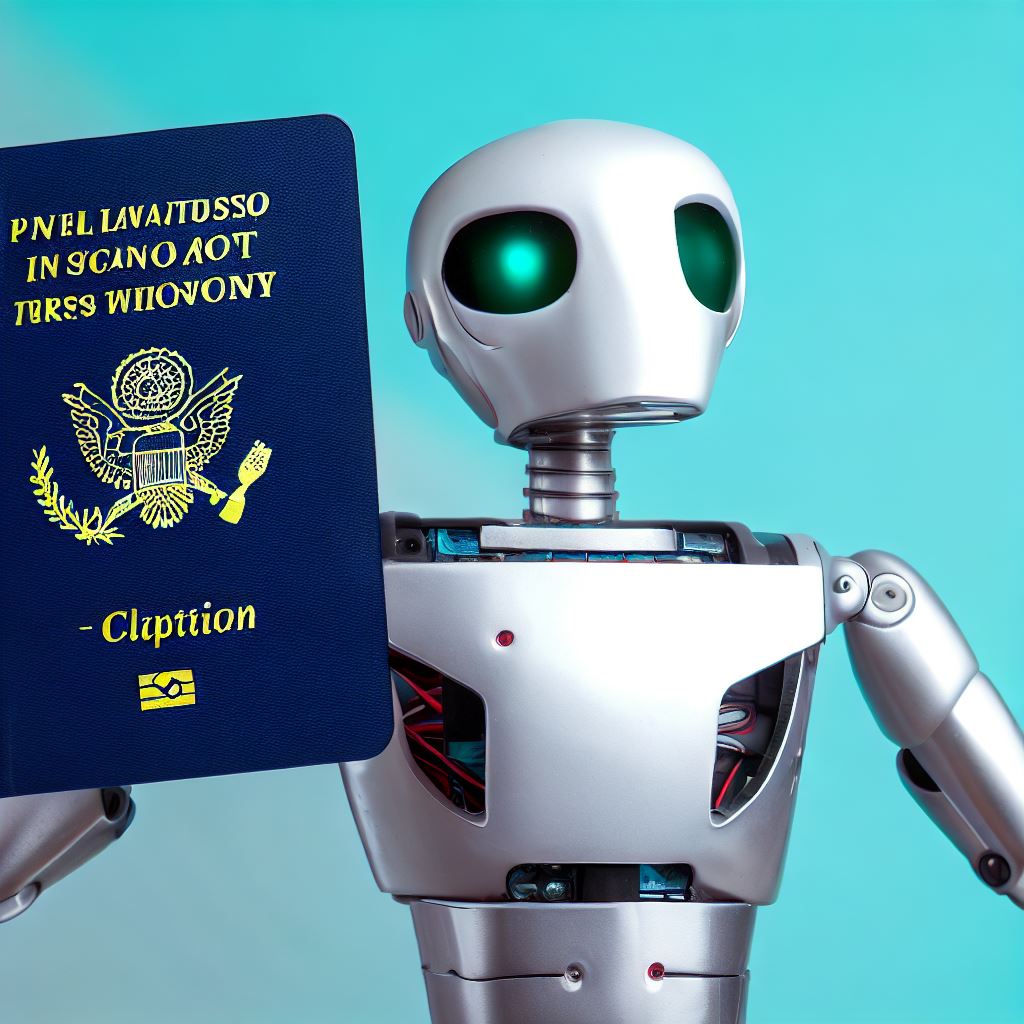Navigating the Skies: Flying Domestically within Mexico in 2024
In 2024, with the rise of nomadic lifestyles and the allure of exploration, the question of can I fly within Mexico without a passport 2024 more relevant than ever. While the idea of jetting off to the vibrant, culturally-rich, and diverse regions of Mexico is exciting, it’s crucial to navigate the legalities and requirements correctly to ensure smooth travel experiences.
Thank you for reading this post, don't forget to subscribe!
A Passport’s Role
A passport is typically perceived as an essential travel document for international journeys. However, the question arises regarding its necessity for domestic flights within a nation, particularly in Mexico. For U.S. citizens, a passport book or card is required, alongside an entry permit or Forma Migratoria Multiple (FMM) issued by Instituto Nacional de Migración (INM), for entry into Mexico.

The question then emerges—once in Mexico, can U.S. citizens roam the skies of this diverse nation without this golden ticket?
Mexican Citizens and Domestic Travel
It’s noteworthy that not all Mexicans possess a passport. However, the lack of a passport doesn’t exclude them from flying domestically. A photo ID suffices for Mexican citizens to undertake air travel within their country, facilitating connectivity and ease of travel.
U.S. Citizens and Air Travel within Mexico
Once inside the country, U.S. citizens contemplating domestic flights need to consider the required documentation meticulously. The general consensus reveals that, indeed, U.S. citizens must present a valid passport book when traveling within Mexico, as per various travel advisories and forums.
Travel forums like TripAdvisor reveal experiences and shared knowledge, emphasizing that one cannot legally enter the interior of Mexico, beyond the 25 km border zone, without a valid passport. While it may be an acceptable document for flying wholly within Mexico once you have crossed the border, the initial entry mandates a passport booklet.
Real ID Act and Its Implications
The Real ID Act in the U.S. has specific implications for domestic travel. Starting from May 7, 2025, state driver’s licenses must be REAL ID compliant for air travel within the U.S. This law emphasizes the need for more than a standard driver’s license to board a domestic flight in the U.S., making passport books and cards acceptable IDs for domestic flights.
However, for international travel, including to Mexico, a valid passport or passport card is still a necessity.
The Importance of Valid Travel Documents
Proper identification, like a valid passport or professional identification, is emphasized by various airlines, including Viva Aerobus and Volaris. These airlines outline the necessary travel documents for passengers traveling within Mexico or abroad, making adherence to travel document requirements imperative to avoid any unexpected hindrances.
The Role of Authorization Requirements
New authorization requirements set to go into effect impact U.S. passport holders, altering the travel landscape for Americans. For instance, travelers previously journeying to Europe without a visa would need to apply for authorization in the future. This emphasizes a growing need for awareness regarding travel requirements, document validity, and potential changes to avoid any interruptions in planned explorations.

Exploring Mexico without a Passport
Interestingly, one can still experience the richness of Mexico without a passport when traveling by land or sea. Those traversing by these modes need only a driver’s license or birth certificate, extending the opportunity to explore Mexico’s diverse terrains and cultural tapestries.
However, those seeking to dive deeper into Mexico, beyond the 25 km border zone, would require valid documentation. The point of entry is crucial in dictating the subsequent requirement of travel documents within the country.
Navigating the Closed Loop Cruise Destinations
Explorers seeking alternatives have the option of closed-loop cruise destinations, allowing Americans to visit multiple locations without a passport. These cruises, commencing and concluding at the same U.S. port, offer a unique perspective on travel, intertwining convenience with exploration.
The Essence of Legal Travel Requirements
The laws and regulations surrounding domestic air travel within Mexico articulate the necessity of being well-informed. Whether you’re a U.S. citizen exploring the diverse landscapes of Mexico or a local delving into the roots of your homeland, understanding the legal travel requirements is pivotal. The Mexican government mandates specific regulations for entering the country, and respecting these norms ensures a seamless and enriching travel experience.
Conclusion
As the world evolves and the penchant for travel burgeons, the intricate dance between legality and exploration becomes more pronounced. In 2024, the ability to fly within Mexico is laden with stipulations and varied possibilities, a blend of stringent requirements, and flexible alternatives.
For Mexican citizens, a simple photo ID serves as a gateway to the myriad experiences within their homeland. However, for U.S. citizens and other foreign nationals, the exploration of Mexico’s rich and diverse terrains demands a deeper understanding of travel document requirements.
The initial entry point, mode of travel, and subsequent journeys within the country are all interlinked components requiring meticulous attention and adherence to the legal frameworks set forth by the Mexican government. Whether it’s soaking in the cultural richness of Mexico City or lounging on the pristine beaches of Cancun, adhering to the stipulated norms ensures that the beauty and vibrancy of Mexico are experienced without a hitch.

In conclusion, the harmony between exploration and legality is achieved through informed decisions, respectful adherence to country-specific norms, and a continuous thirst for understanding the intricate tapestries of the world. So, arm yourself with knowledge, respect the land and its laws, and dive into the boundless experiences that Mexico has to offer. The skies are vast, and Mexico, with its cultural richness, historical depth, and natural beauty, is waiting to be explored, respected, and cherished.
F.A.Q. Can I Fly Within Mexico Without a Passport
Question 1. Can U.S. citizens fly domestically within Mexico without a passport in 2024?
A.: In 2024, U.S. citizens are required to present a valid U.S. passport book or card when flying domestically within Mexico. This requirement is in addition to an entry permit, known as Forma Migratoria Multiple or FMM, issued by Instituto Nacional de Migración (INM).
Question 2. What are the necessary documents for U.S. citizens to travel to Mexico by air?
A.: U.S. citizens traveling to Mexico by air need to carry a valid U.S. passport book. This document serves as proof of citizenship and identity and is mandatory for air travel. Additionally, upon arrival, travelers need to obtain an entry permit, or Forma Migratoria Multiple (FMM), from the Instituto Nacional de Migración (INM).
Question 3. Are there circumstances where one can travel to Mexico without a passport?
A.: Yes, there are limited circumstances in which U.S. citizens can travel to Mexico without a passport. When traveling by land or sea (e.g., by car or cruise), U.S. citizens can use documents like a birth certificate or a driver’s license as proof of citizenship. However, these alternatives to a passport are generally not accepted for air travel.
Question 4. What documents are needed for a child traveling to Mexico by air?
A.: Children traveling to Mexico by air are required to have a valid passport. The requirements are generally the same as for adults. It is also advisable to carry documentation, such as a notarized letter of consent, if the child is traveling with one parent, a guardian, or a group, especially when the child’s companions are not their legal parents.
Question 5. Will there be any new travel authorization requirements in the year 2024?
A.: Starting from 2024, citizens of over 60 visa-exempt countries, including Mexico, will be required to have a travel authorization to visit certain regions, like Europe. The European Travel Information and Authorization System (ETIAS) will become mandatory for citizens from these countries. It will require travelers to apply for an authorization before their journey and is intended to strengthen security checks on those traveling to the Schengen Area.
Question 6. Are there any specific passport validity rules when traveling to Mexico?
A.: Travelers to Mexico should ensure that their passports are valid for the duration of their stay. However, the regulations do not explicitly state a requirement for passports to be valid for six months beyond the planned date of departure, a common international travel standard. Nevertheless, maintaining an extended validity can prevent potential disruptions in travel plans.
Question 7. Is a visa required for U.S. citizens visiting Mexico?
A.: U.S. citizens do not require a visa for short visits to Mexico for purposes like tourism or business. However, they are required to obtain a Forma Migratoria Multiple (FMM), an entry permit, which is available at airports and land border crossings. The FMM is essential for legal travels beyond the immediate border area into the interior of Mexico.
Summary:
Traveling to and within Mexico requires careful attention to documentation and entry requirements. U.S. citizens are generally required to present a valid U.S. passport for air travel to Mexico and domestic flights within the country. However, traveling by land or sea offers more flexibility with the possibility to use other documents like driver’s licenses or birth certificates as proof of citizenship.
Children, like adults, require valid passports for air travel to Mexico, and additional documentation may be advisable in certain travel scenarios. Starting 2024, new travel authorizations, like the ETIAS, will be enforced for many visa-exempt countries to strengthen security within the Schengen Area. Always ensure your travel documents are in order and up to date to avoid disruptions in your travel plans.

